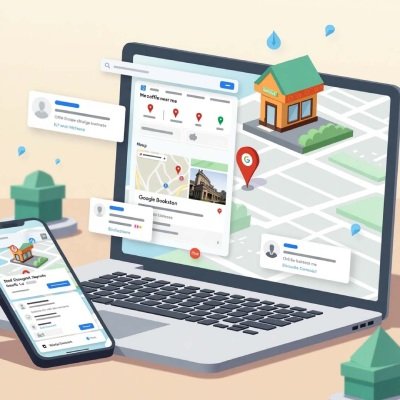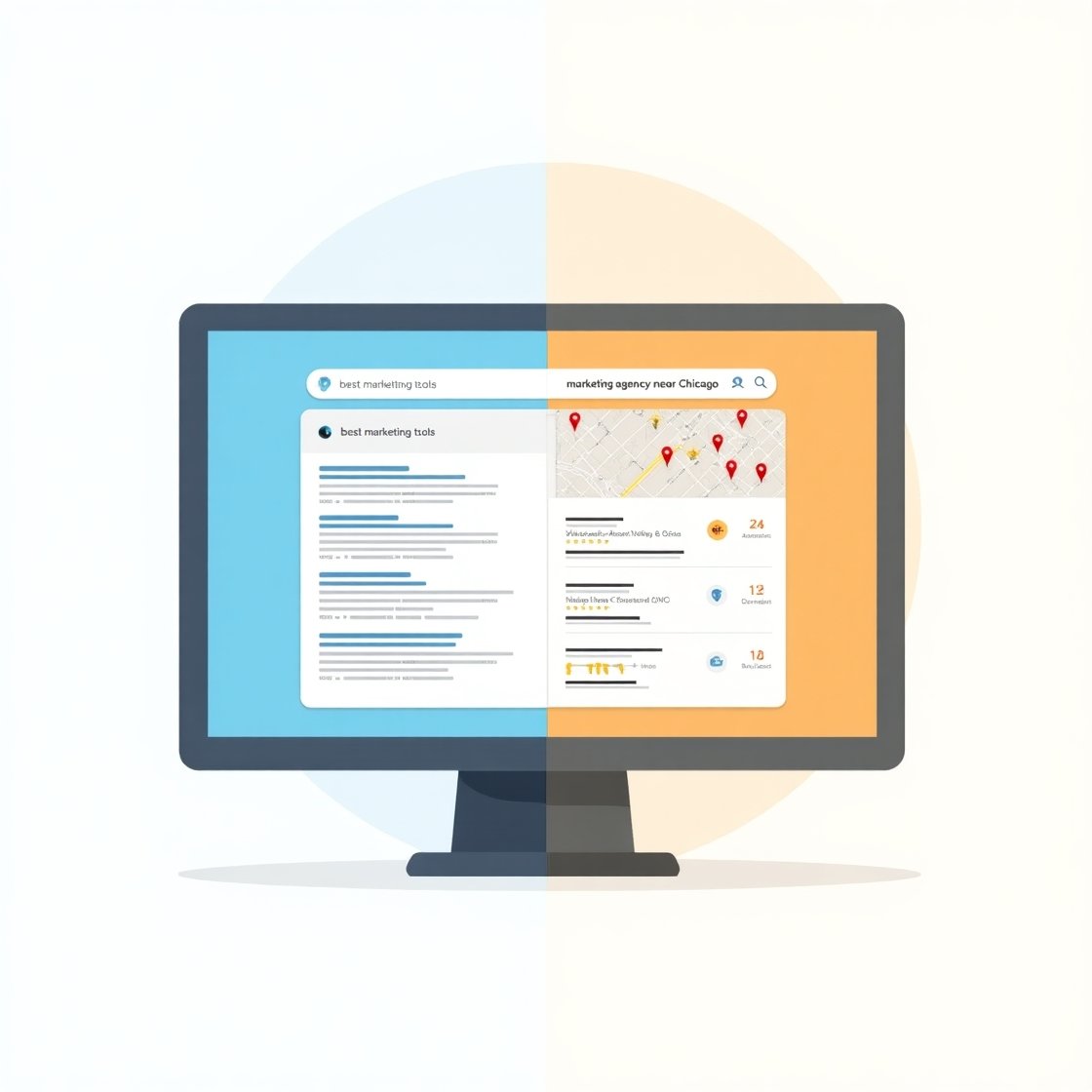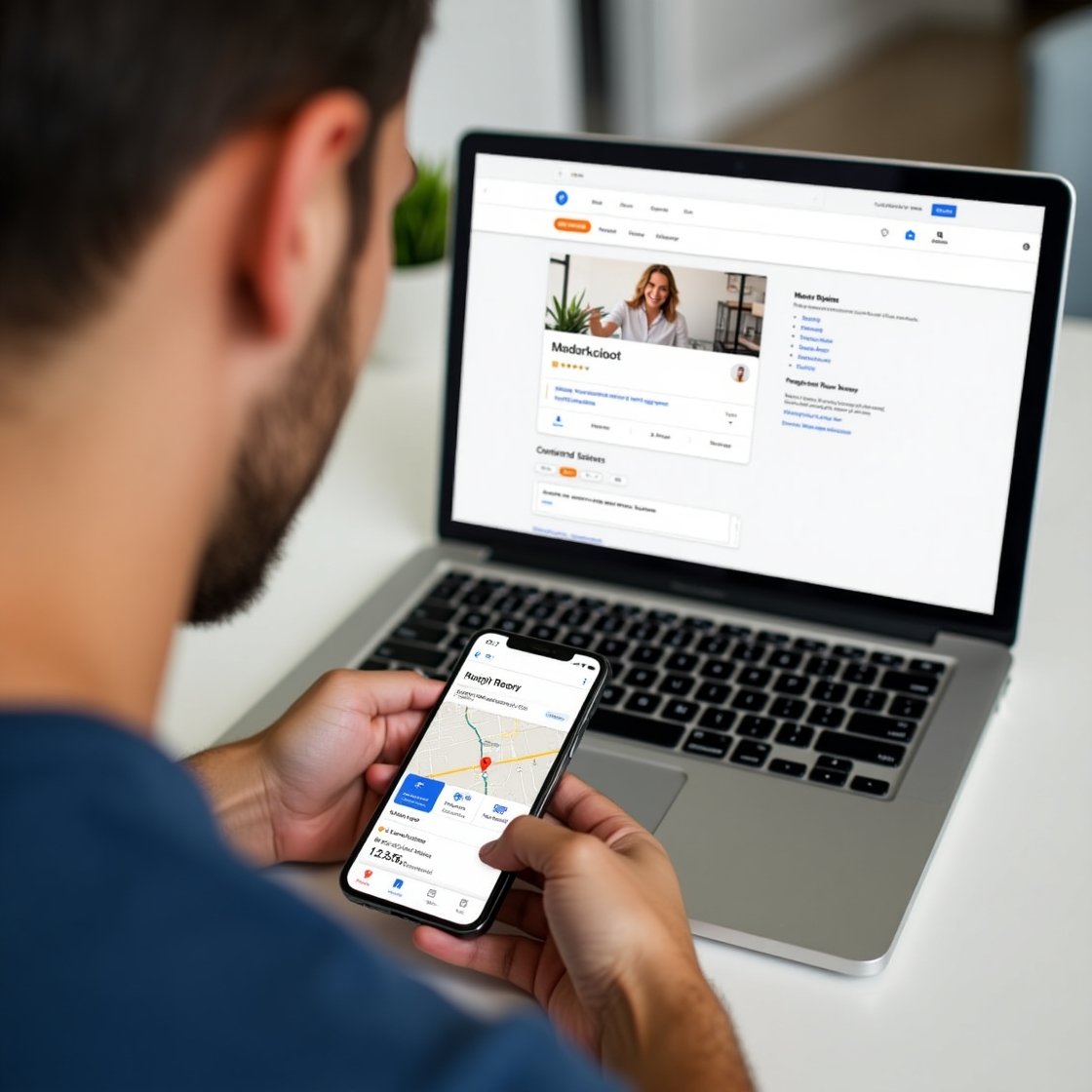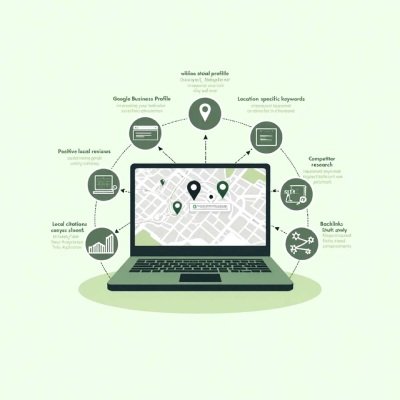Local SEO Mastery
What Does Local SEO Really Mean for Your Business?

When I first tried to get my small business noticed online, I had no idea how much Local SEO would matter. It’s not just a technical process, it’s a real world strategy that can improve your business’s visibility and bring in nearby customers who are actually searching for what you offer. The goal is to optimize your online presence so your business can appear in Google Maps, packs, and near me searches the exact spots people look when they need services or products quickly. Whether you’re putting your store on the map literally or building a strong website, it all starts with understanding what searchers want, how they conduct searches, and how to make sure your results land at the top.
What worked for me was learning to focuses on key elements like optimizing my Business Profile, creating consistent listings, and choosing the right mix of organic and sponsored tactics. It’s a mix of approaches that don’t always have to involve paying for ads or fighting for prioritized placement. By experimenting with both free and paid tools, I found ways to attract the right people without breaking the bank. Optimizing your Profile and using the right SEO tools helps your business not only get seen, but also chosen. Unlike more traditional advertising, Local SEO is more about showing up when and where it matters most and that makes all the difference.
Why Is Local SEO Important for Small Businesses?

Local SEO helps small businesses increase their visibility in local search results, directly influencing how people make purchasing decisions. As users rely more on search engines to discover nearby products and services, appearing on SERPs (search engine results pages) has become a game changer for any business especially those with physical locations.
- A well structured strategy ensures your Google Business Profile is fully optimized, with gathering customer reviews playing a vital role in increasing ranking.
- With 93% of consumers saying that online reviews influence their buying choices, it becomes critical to build a positive reputation.
- Higher ranking and better discoverability can make your company appear in Google’s local pack, a box that shows up at the top of the SERP, displaying listing details and user reviews.
Local SEO doesn’t just improve your organic rankings it helps your business beat out large competitors by prioritizing local signals that attract more customers right when they need you.
- It allows people to easily connect, call, book, or visit your store, literally walking through your doors.
- Whether they are researching vacation stops or already mid journey, users want instant access to work visuals, location, and resources.
- By creating a presence with consistent listings, small businesses can earn buyer trust and reach potential clients who are early in their journey.
Even if your company is a franchise or not limited to one specific area, a local presence built on emphasizing local impact, organization’s reputation, and strong offerings helps grasp the attention of potential buyers.
- Use tools and statistics to learn what makes your audience engage.
- Focus on conversion by easing pain points and offering direct access to services through search results.
- These elements are not just good to have they are critical reasons why local SEO should be a top priority.
Ultimately, developing an effective local SEO strategy means leveraging every factor rankings, customer insight, reviews, location data, and search impact to help your business grow and thrive.
What is the Difference Between Local SEO and Traditional SEO?

The difference between local SEO and traditional SEO lies in the type of search engine results being targeted. From my experience, when optimizing for localized search results like bakery near me or SEO companies Los Angeles, you’re focusing on reaching people in a specific area. This is essential for businesses that rely on foot traffic or serve particular regions. On the other hand, traditional SEO aims at non localized search results such as how to change flat tire or best project management software, where location doesn’t matter. Each method requires a different strategy depending on whether you’re reaching a global or a neighborhood audience.
How does local SEO work?
Local SEO uses specific SEO ranking factors combined with localized signals to improve how a business appears in local searches. The Google Business Profile plays a big role when it comes to relevance, or how well it aligns with a user’s search. Then there’s distance, which measures how close the business is located to the searcher or their specified location, like someone searching “campgrounds near conway nh.” Prominence is another key factor, showing how reputable and well known a business is on the web through online reviews, directories, articles, and backlinks. Search engines like Google analyze these ranking signals to generate search results that may look like the typical non localized results (such as ten blue links) or more tailored localized search results, often seen as the local pack, which includes a carousel of business listings.
7 Tips for an Effective Local SEO Strategy

Claim and Optimize Your Google Business Profile
Setting up your Google Business Profile was the first move I made when launching my business locally, and it truly became the cornerstone of my local SEO success. The key is to claim ownership of your profile and ensure every detail from name, address, and contact info to services, photos, and hours is accurate and up to date. I learned quickly that posting regular updates, events, and offers keeps your profile enhanced, engaging both customers and search engines. Never attempt to stuff keywords into your business name it can get you banned or penalized.
Encourage clients to leave reviews by sharing a QR code or review page link via emails or texts. Responding to both positive and negative feedback shows you value your customers’ experiences and helps build reputation. When a competitor has 20 reviews, aim for more. Weekly check ins helped me stay consistent whether updating images, resolving issues, or responding to follow up comments. This essential step gave me an edge in ranking locally.
Create Landing Pages for Specific Locations and Goods/Services
Creating unique landing pages for different locations and goods gave my business a noticeable ranking boost. Each dedicated page must highlight relevant products or services with localized keywords like “gym near me” or “bakery South London.” Using a tool like SEO Space, I conduct keyword research to identify long tail phrases that customers are actively searching. Embedding directions, videos, an embedded map, and photos of the team or work builds credibility.
Your page structure matters a clear SEO title, supporting CTAs, and testimonials from local clients can push your optimization further. To prevent clutter, keep some pages out of your main navigation but still accessible to search. Implementing these elements strategically, paired with a clean design, led to a more engaging user experience and improved visibility across websites and search engines. I always refer back to proven examples and guides for consistent improvement.
Create a Blog to Share Your Knowledge and Business Story
Blogging has always been my favorite way to connect with my community and share my knowledge. Starting a blog not only helped my brand feel more authentic, but also boosted my rankings through consistent updates. I made it a habit to post behind the scenes insights, challenges, and local area tips that resonate with my audience. This kind of content humanizes your story and builds trust with potential customers.
Over time, my engagement increased as more people related to my journey and saw me as a part of the market rather than just a seller. Blogging is more than just a secret weapon it’s about making your expertise accessible and building familiarity. As algorithms evolve, they reward effective, meaningful content that helps you connect rather than just rank higher. Keep it personal, real, and valuable to your readers.
Keep Your Google Business Profile Updated
Many overlook this, but keeping your Google Business Profile consistently updated is a game changer for visibility. I make sure to add engaging content, new products, and even seasonal offers with clear, concise descriptions. Using high quality images and videos helps capture the attention of searchers and gives them a snapshot of what to expect. I also include CTAs like “Learn more” or “Call now” to encourage action.
By making regular updates, you remind both your audience and search engines that your GBP is active and relevant. Keeping the information short but informative increases media relevance and keeps you appearing in local results. Whenever I added a new product or event, I made it a rule to update the listing right away. These simple practices helped maintain trust and improve my ranking significantly.
Do Competitor Research to Outrank Similar Local Businesses
I always begin my strategy by researching what my competitors are doing and more importantly, how I can do it better. If one business is using massage Los Angeles as a primary keyword, I look for variations like “best massage therapist Los Angeles” to avoid high competition. Reviewing their structure, services, and offerings gives me ideas on what gaps I can fill. If they have 50+ reviews, I aim for more. This kind of analysis makes your goals more actionable.
Dig into their business categories, listings, and products are they targeting the right audience? Are there areas they’ve missed? I use those insights to create content or pages they haven’t covered. Matching and exceeding your competitors’ strengths, while building trust with positive reviews and a better user experience, can make your optimization efforts more effective. Success often lies in strategic research, small improvements, and being just one step ahead.
List Your Business on Local Citation Websites
Adding your business to local citation websites was one of the simplest yet most impactful SEO actions I’ve taken. Sites like Yelp, Yellow Pages, or niche specific directories improved my credibility and search visibility. Make sure your business name, address, and phone number are identical across all listings. Consistency sends strong signals to search engines that you’re a legitimate player in your industry and location.
Don’t overlook category specific or Chicago specific directories if you’re in that area. Getting mentioned in “Top 10 Businesses” lists or articles on the internet not only helps your rankings but boosts your reputation. I once gained several leads from a single mention in a florist directory. Keep your citations accurate, and you’ll prevent confusion and strengthen your online presence in a very real way.
Get Active in Community Events in Your Area
Nothing builds your brand and reputation like being part of your community. I began volunteering at small events and offering sponsorships, and before long, I was getting featured in local media. These stories earned me backlinks from news articles and even the Chamber of Commerce, signaling to search engines that I was trustworthy and relevant. That coverage drove new eyes to my website without any ad spend.
Being present in real life lets you form real relationships. Showing up and participating created strong associations between my name and causes that mattered to my customers. People became familiar with me, and my visibility soared. Local SEO isn’t just digital it’s deeply tied to your real world presence. Whether it’s a cause you believe in or simply saying yes to participation, those actions build long term trust.
The basics of a local SEO strategy

Building a strong Local SEO presence starts with understanding its fundamentals a mix of marketing efforts focused on a few key components. These basics form the groundwork to boost your online visibility and attract more local customers who are searching for your offerings nearby.
- Local SEO helps businesses reach local customers at the right time.
- Key marketing efforts involve multiple fundamentals and components.
- The goal is to boost your visibility and lay a strong groundwork.
Optimizing your Google Business Profile
Optimizing your Google Business Profile lets you update essential business details so you can stand out in local search results and Google Maps searches. This step makes your listing more trustworthy and accessible for users searching locally.
Optimizing your website for location specific keywords
When your website includes location specific keywords, it ensures your site shows up for people in your area looking for products and services you offer. This helps match your content with real time local intent.
Gathering positive local reviews
Gathering positive local reviews plays a vital role in build trust and encourages new customers to choose your business, especially when they see others have had a good experience.
Researching local competitors
Make sure they offer clear communication, share regular reports, and provide helpful insights to track real progress.
Listing your business on local citation websites and securing backlinks
Listing on local citation websites and securing quality backlinks helps grow your online authority, which can push your business up in local search rankings and establish more credibility.
FAQS:
What's the difference between SEO and local SEO?
SEO targets global visibility, while local SEO focuses on improving search rankings for specific geographic locations.
Is doing a local SEO worth it?
Yes, local SEO is valuable for attracting nearby customers and increasing visibility in local search results.
What does local SEO really mean for a business?
Local SEO helps your business appear in Google Maps, “near me” searches, and local results to reach nearby customers actively searching for your services.
How does local SEO work?
It uses Google Business Profile optimization, relevance, distance, and prominence to rank your business in local search results like the local pack.

